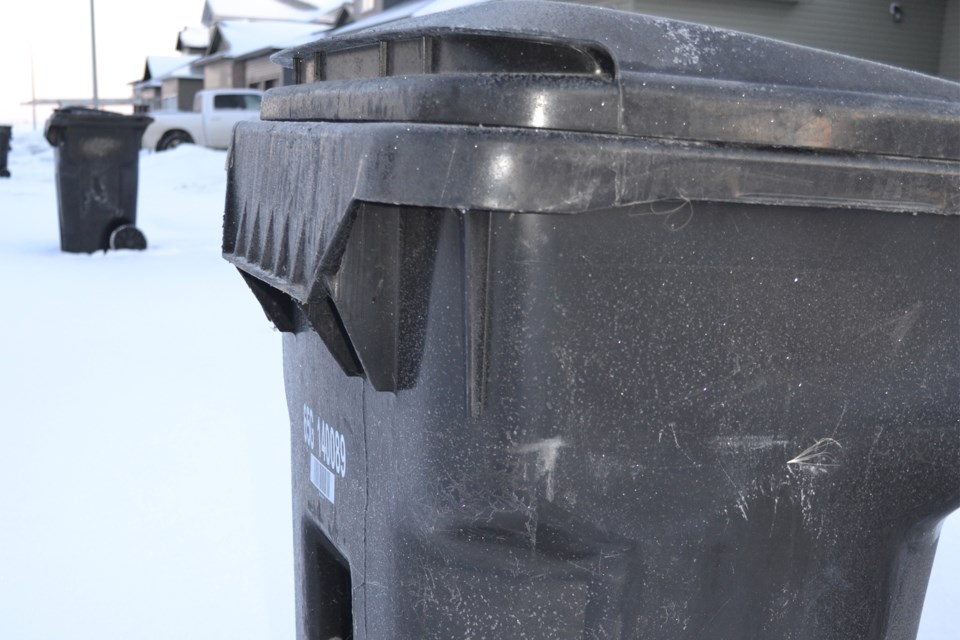OLDS — Sixty-five per cent of respondents to a town survey don’t want more frequent bin pickups because they’d have to pay more for that – an extra $8.60 a month for pick-ups every two weeks instead of the current three.
Many respondents also complained about the smell emanating from black (garbage) and compost bins, especially in the spring and summer.
The plan now is for administrative staff to analyze the results in greater detail, then bring the matter back when council considers the level of service the town will provide in the future.
“I think the biggest thing was people didn’t want an increase in fees,” said community facilitator Jennifer Lutz, who presented the results during council’s July 12 meeting.
“If there would have been a two-week schedule with no (extra) costs I think that would be a different answer. It’s an extra pick up. That was a major concern, and especially for those who are on fixed incomes."
“We heard that a lot,” she added, noting many respondents said they’re still recovering from the effects of the COVID-19 pandemic and felt higher costs would be another burden.
The response to the survey amazed town staff and councillors: 1,468 people responded out of a population of about 9,600, Lutz noted.
"(That’s) probably one of the largest responses we’ve had to any of our engagements, and we’ve had some very good ones over the past number of years,” chief administrative officer Michael Merritt said.
Currently, black (garbage), blue (recycling) and green (compost) bins are picked up on a three-week rotational cycle.
The survey asked respondents if they would like that rotation to be changed to a two-week cycle whereby, for example, black bin pick up would occur during week 1 and blue bin/green bin pick up week on week 2.
“Due to increased labour, equipment, and fuel to support an additional bin pick up it would cost households an additional $8.60 per month,” a report to council said.
A total of 439 respondents provided feedback in an open-ended suggestion and comment box which was included in the survey.
The town was told that disposal needs are different in winter versus summer and that “a one size fits all approach to waste collection creates challenges,” the report said.
The town was also told that some bins are under-utilized and that pick-up occurs too frequently while other respondents said bin pick up should occur more frequently.
Lutz said she was also surprised to learn that many respondents didn’t know they could buy an extra bin if needed.
“There were concerns regarding high costs of utilities in the town versus neighbouring communities,” the report added.
The survey was undertaken from June 7 to June 30 and was promoted on the town’s social media accounts, its June Connector newsletter and in the June 8, 15 and 22 editions of the Albertan.
Due to COVID concerns, there was no paper-based survey.
Respondents could provide their feedback by phone if they wished. A total of 103 did so, “which is a higher response than typically seen with paper copies of a survey,” the report said.
“Some of the comments were very well thought-out and really good feedback,” Lutz said.
Lutz said many respondents offered other solutions besides the status quo or two-week schedule suggested in the survey.
"Just interesting to me. We assume people know our programs really well, but we could always do better," she said, adding perhaps the town needs to provide more education about services offered.
“People did ask a lot what’s going to their waste and where is it going to be recycled. I think (we need to provide) more education on how the recycling actually happens and what happens with the compost and is it really reducing the landfill capacity?”



